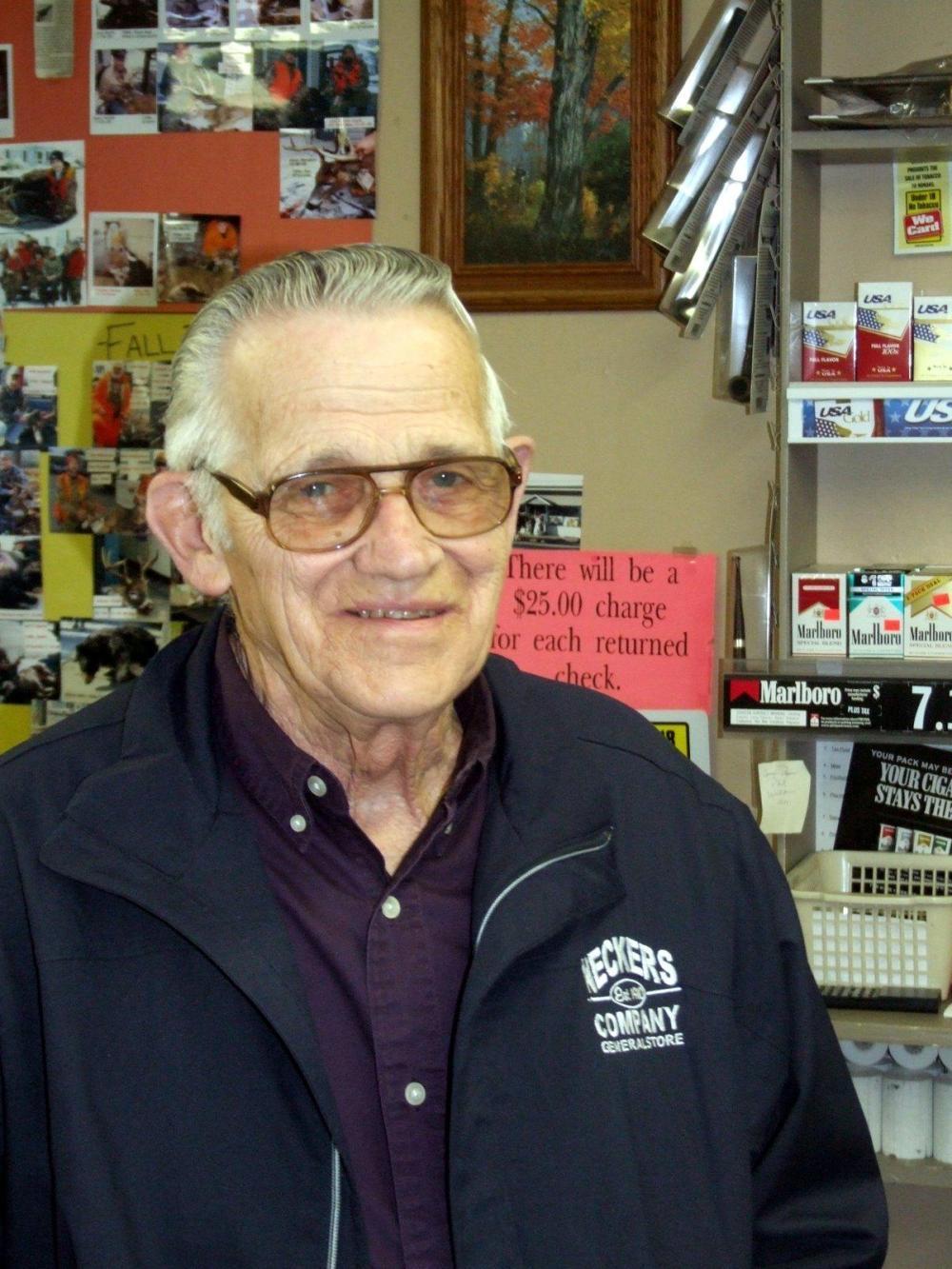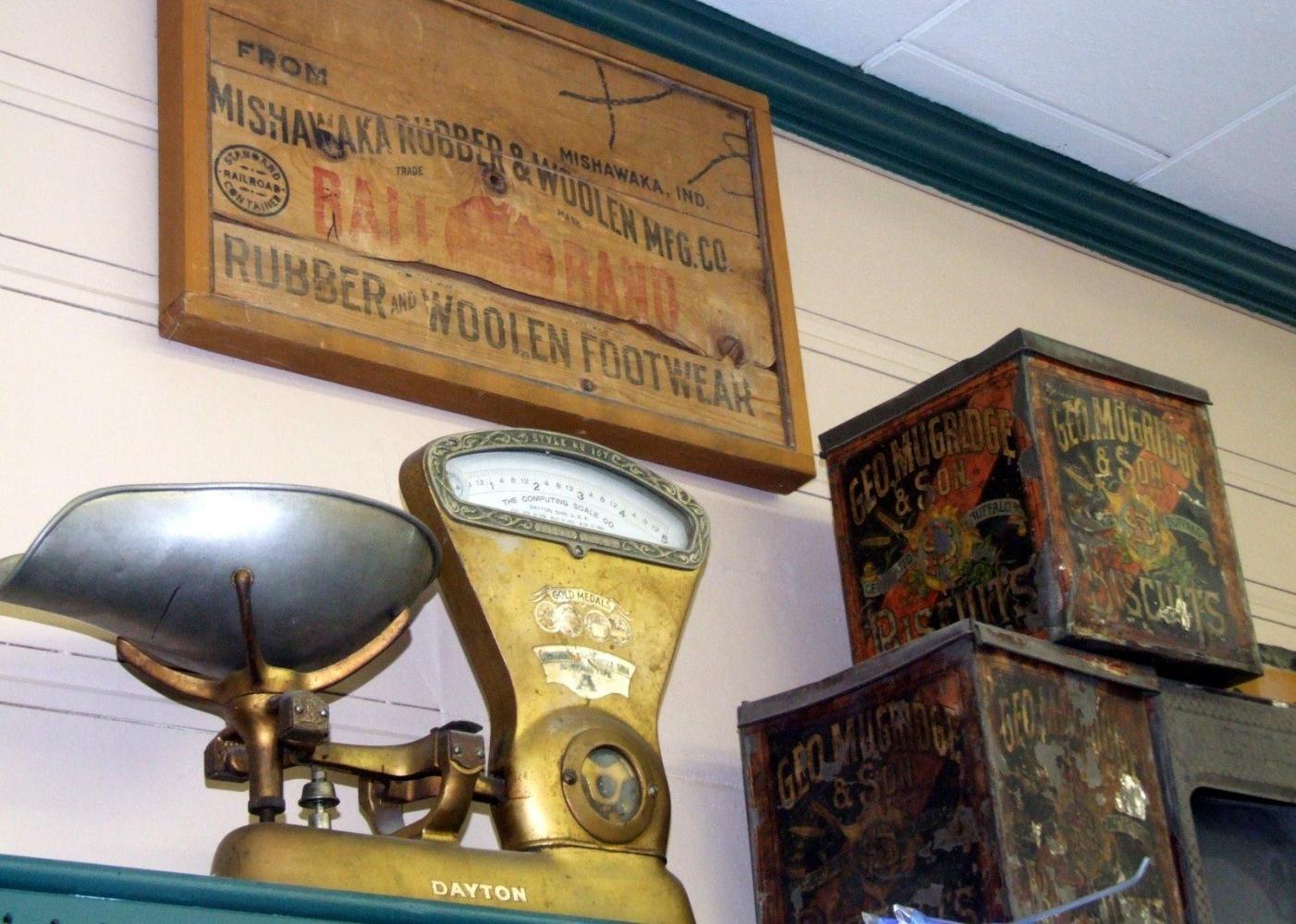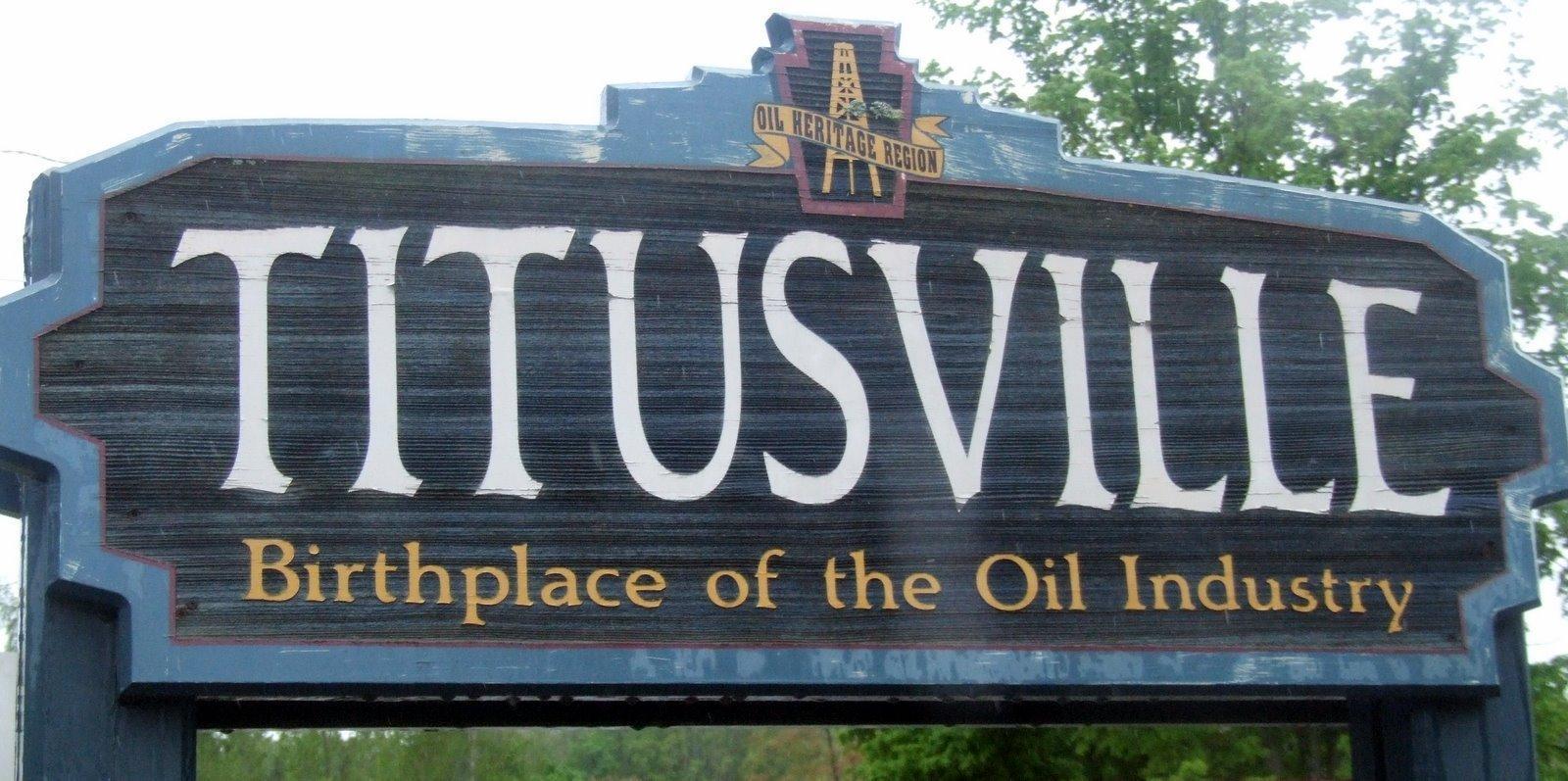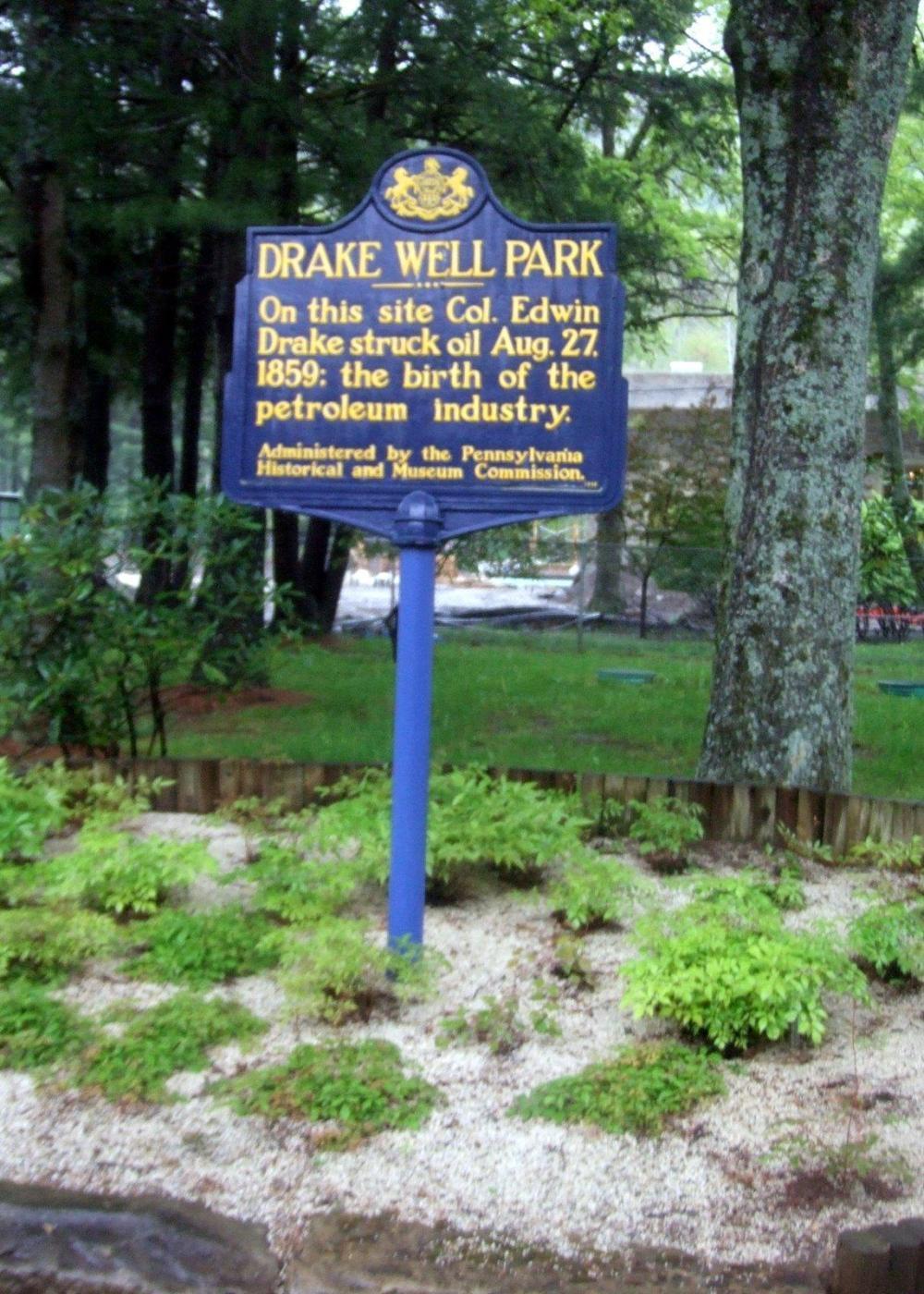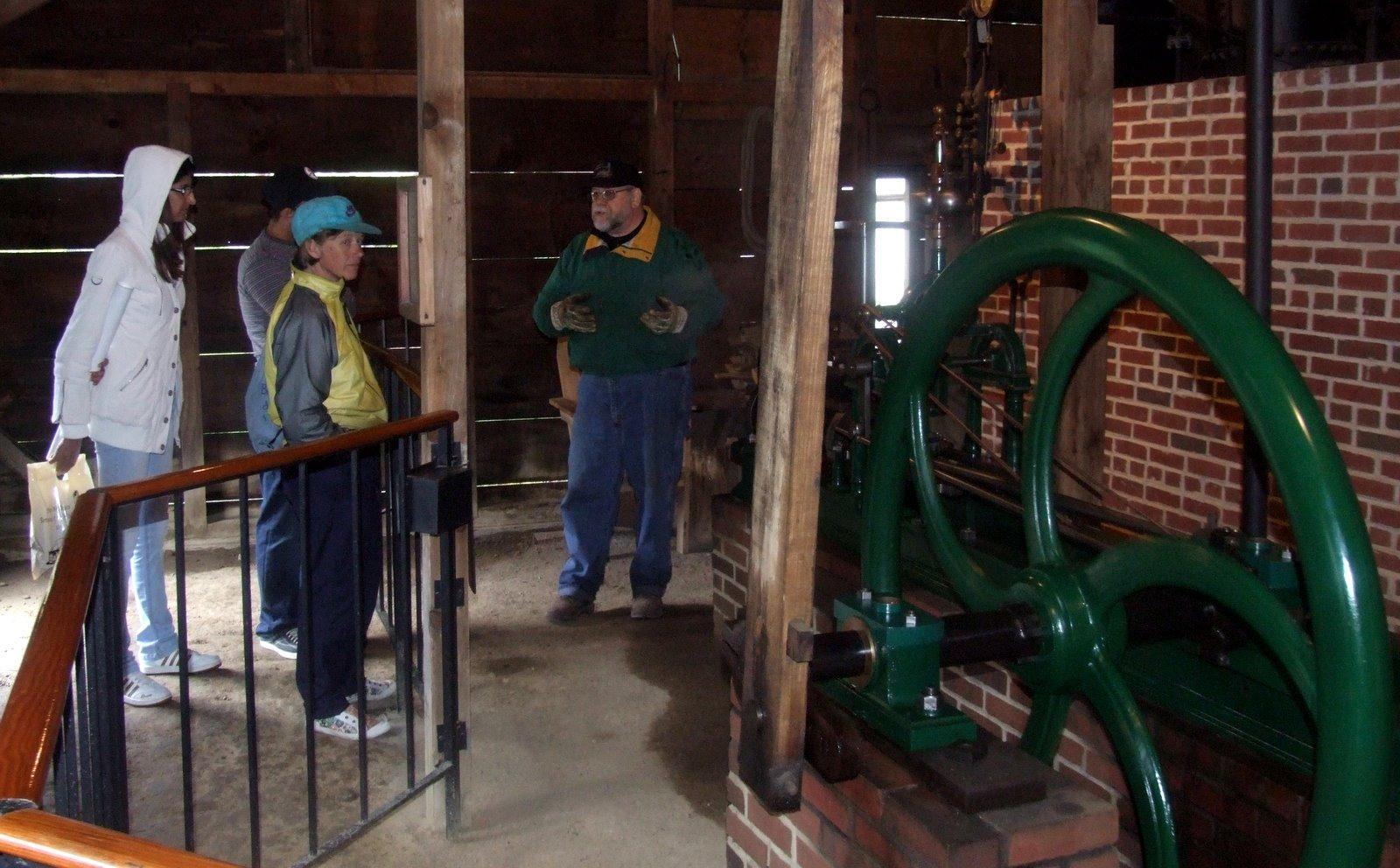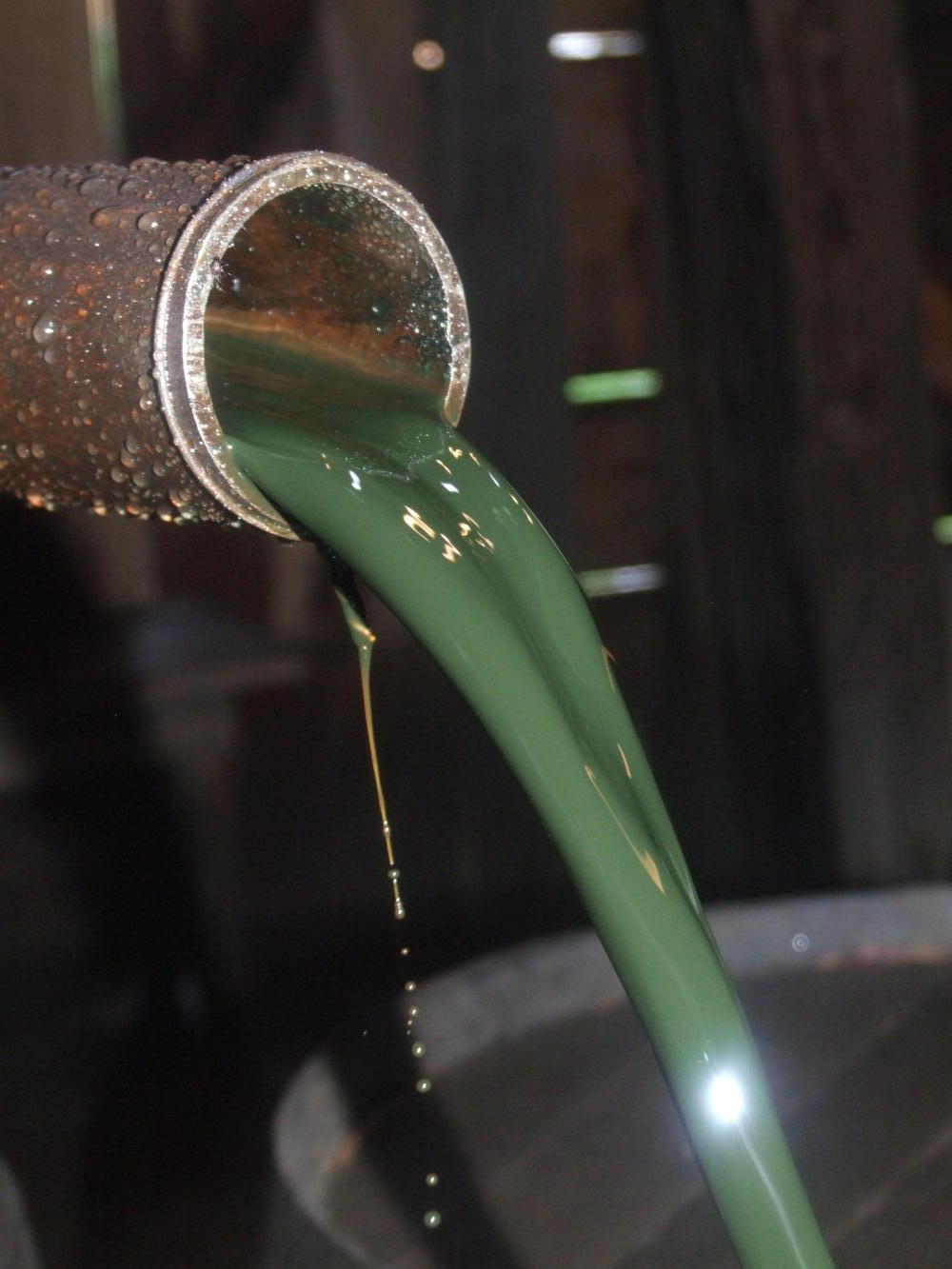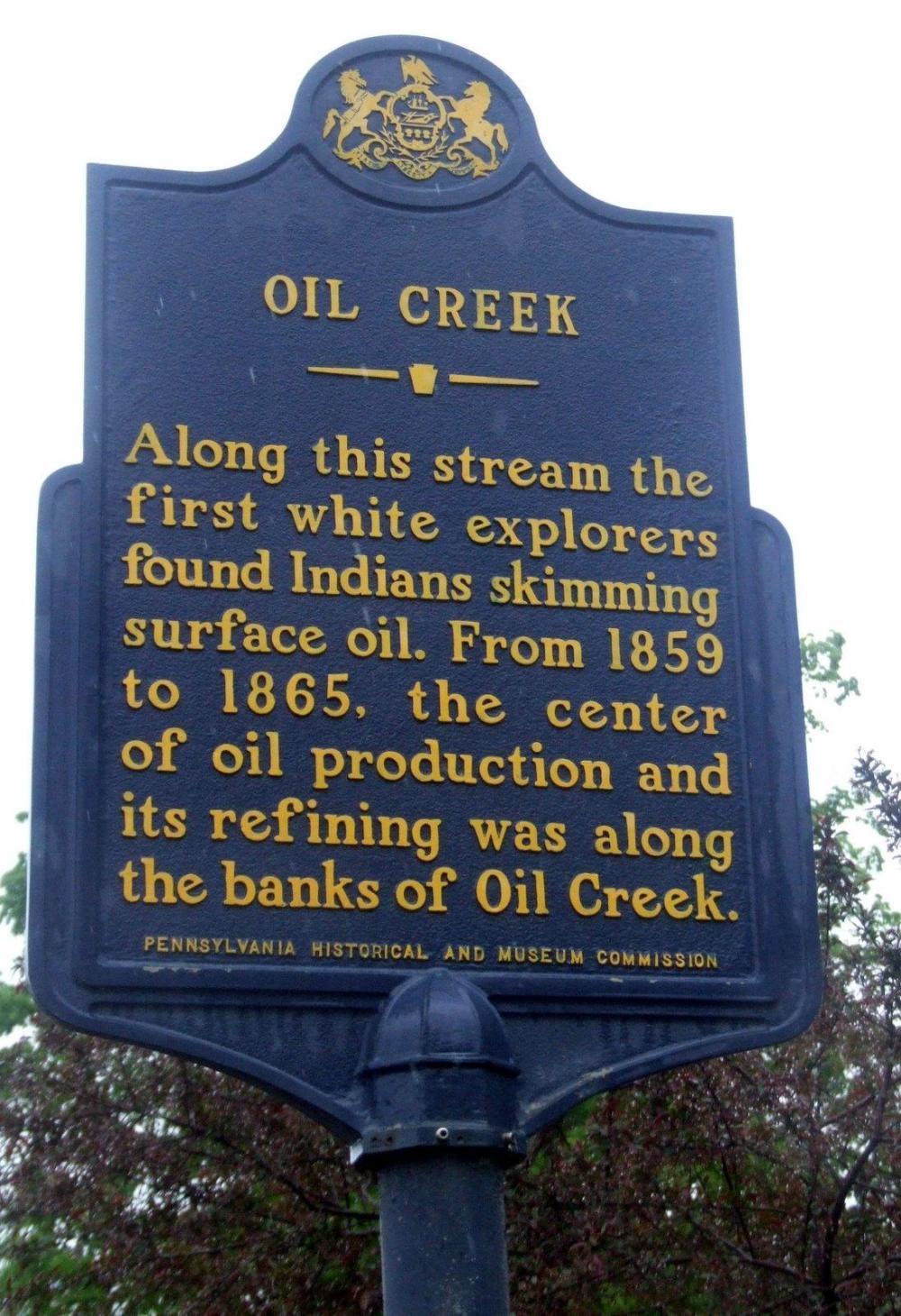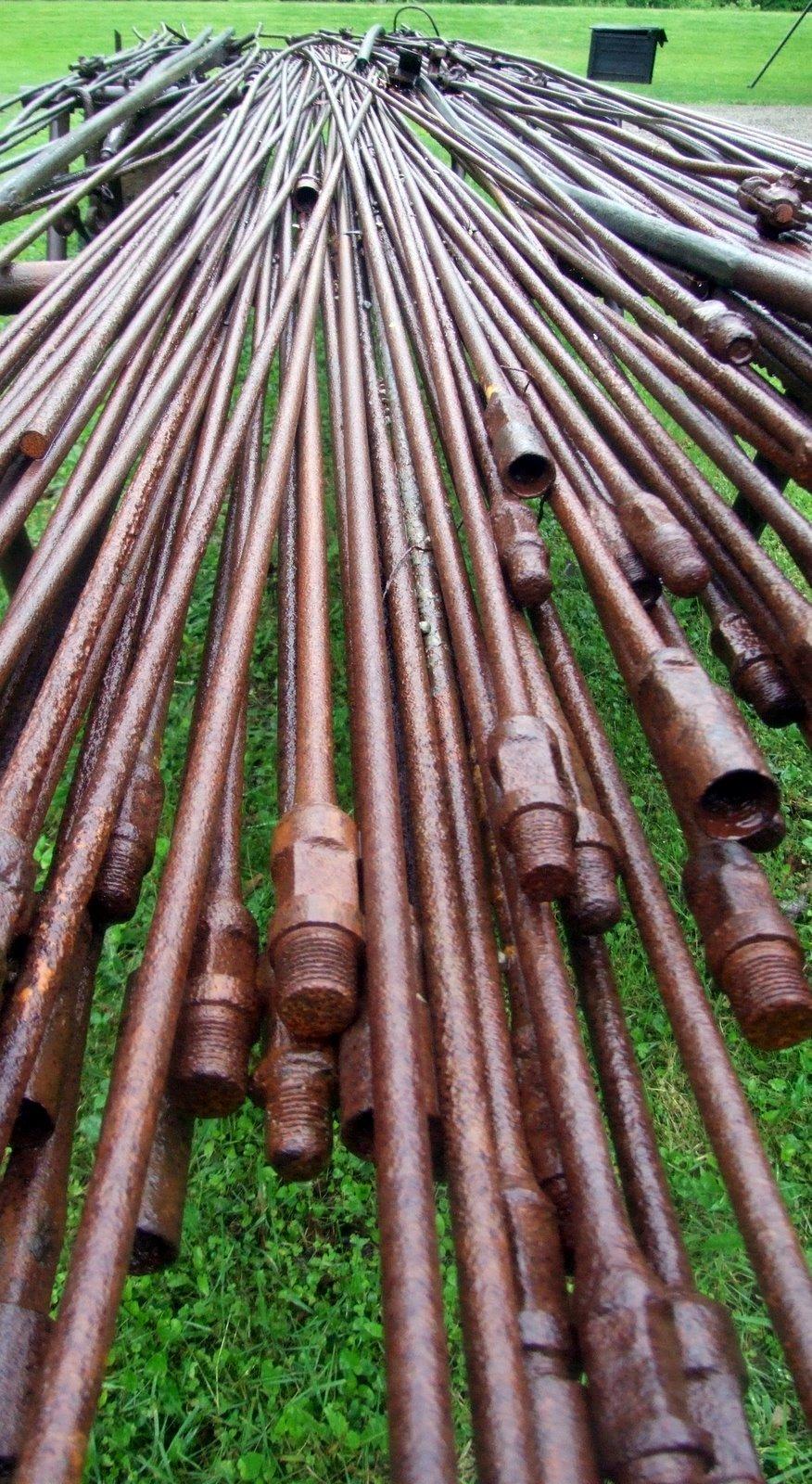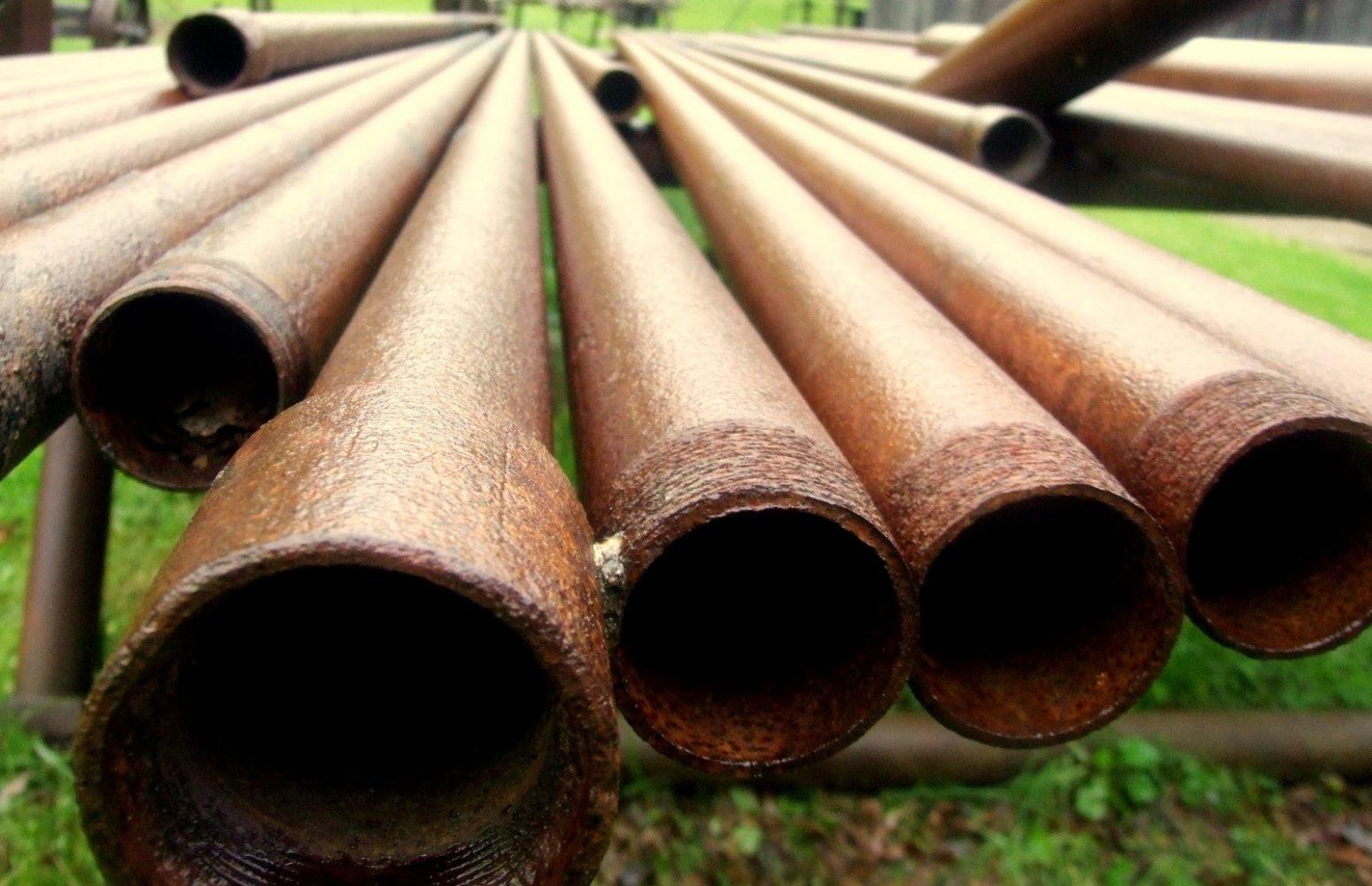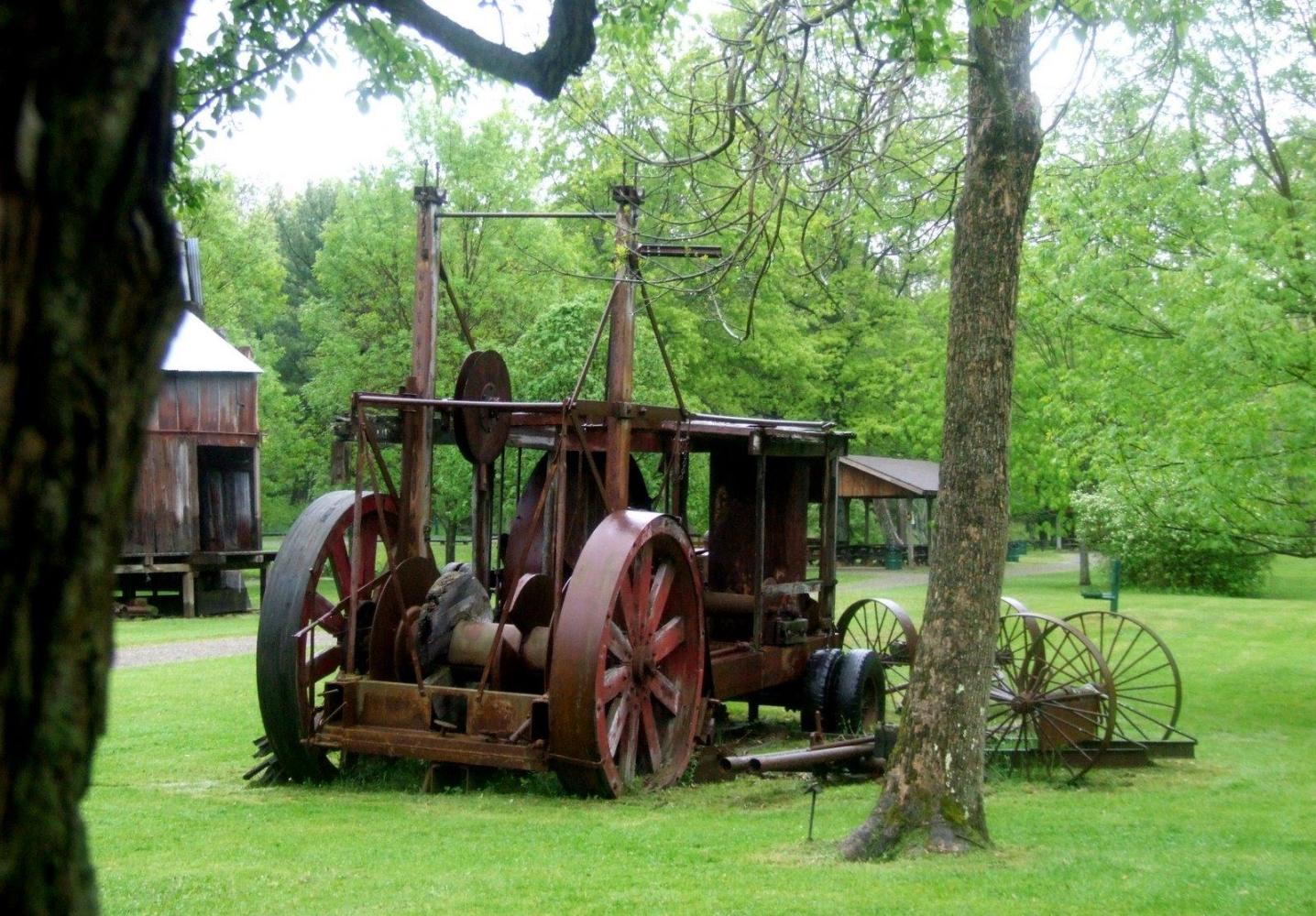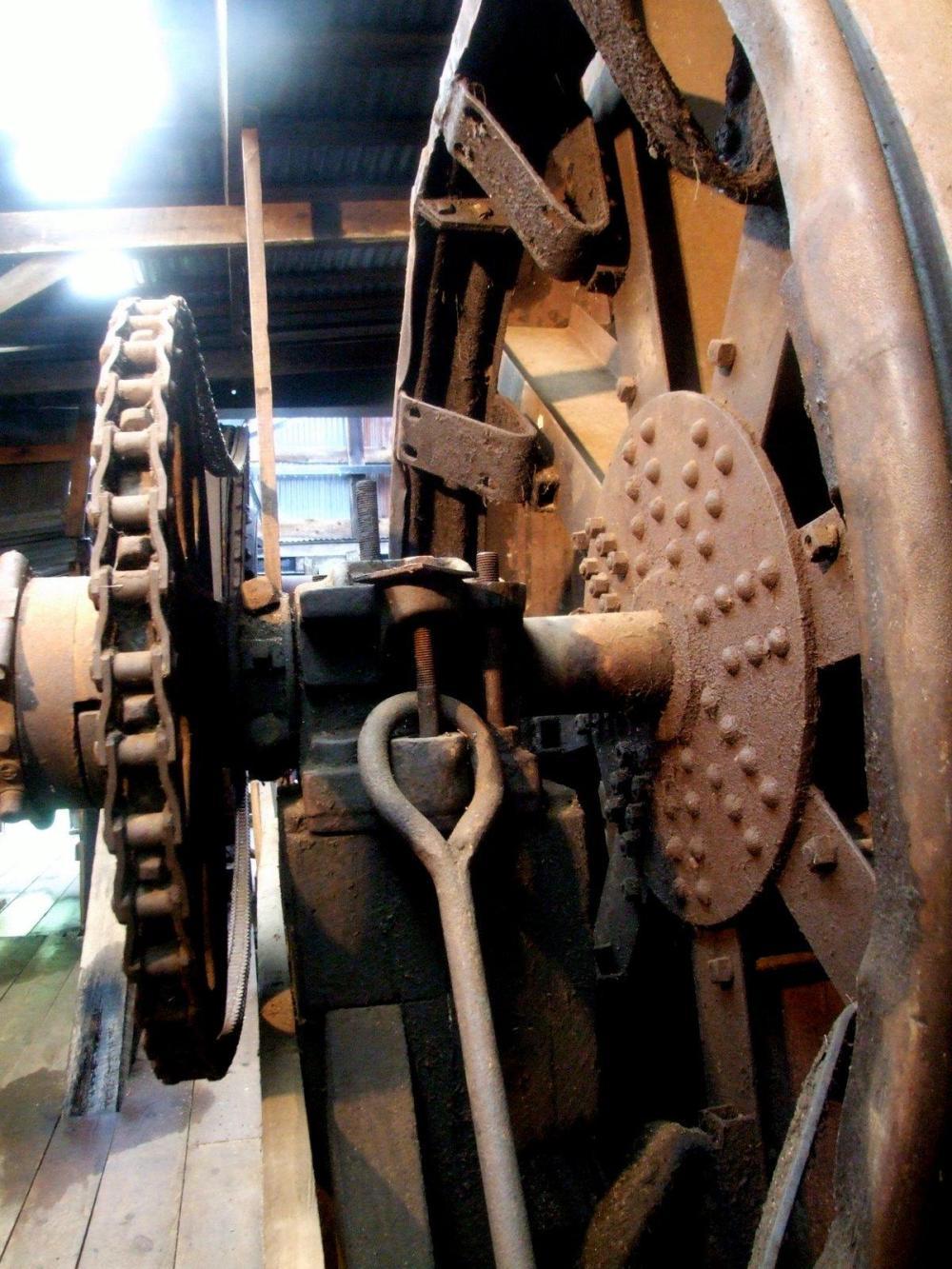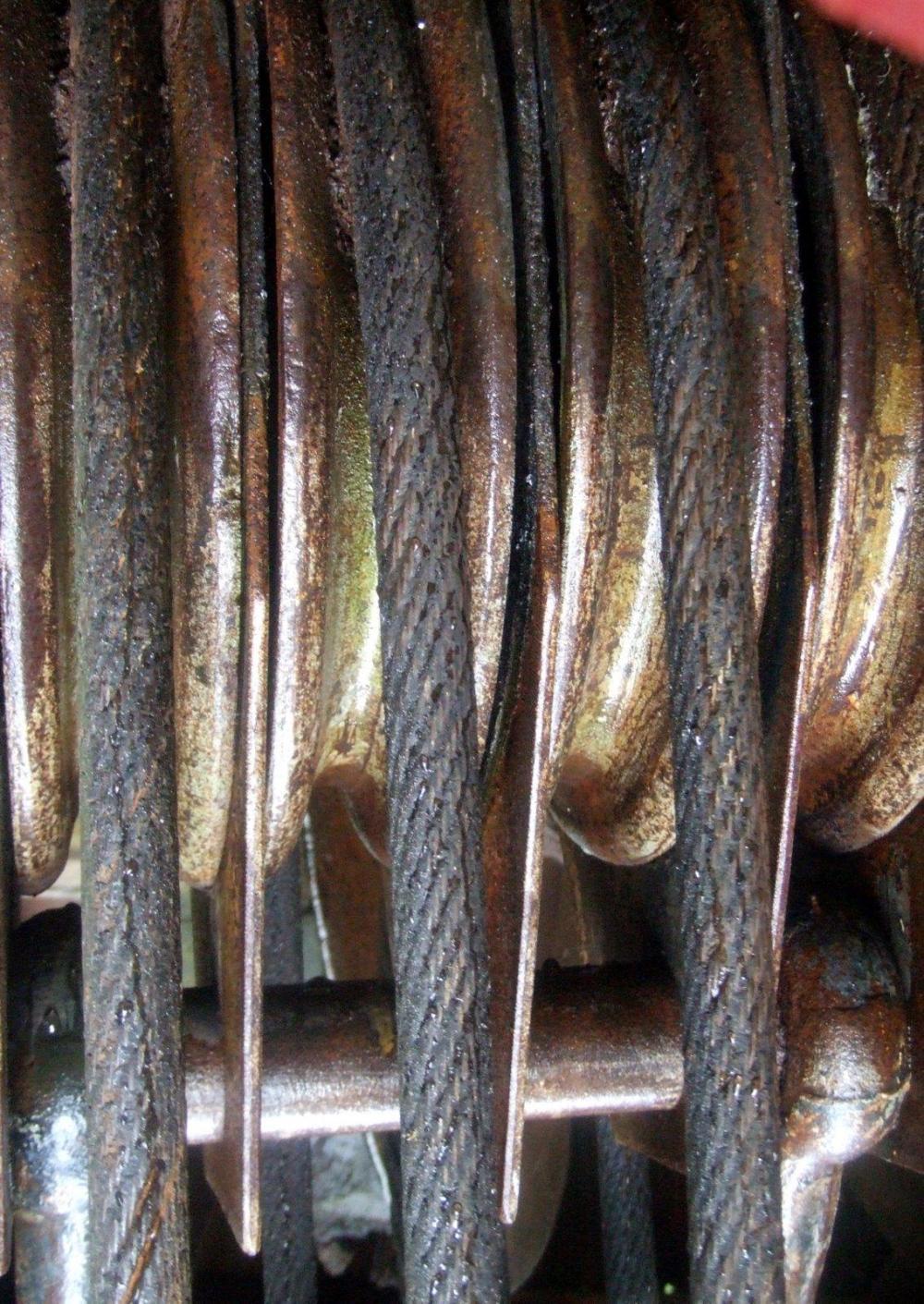May 18: Corry to Titusville, PA

| Heart | 0 | Comment | 0 | Link |
THE LAST PLACE before Corry is Clymer. It's a handful of shops and businesses around a crossroads. It supports and is supported by local farmers. The customers in the cafe talked of fields and bent machinery. "And darn it, darn it, if that didn't get broke," a man in his sixties was saying.
Across the junction is the general store, which has just reached its centenary. Neckers Company General Store sold food, shoes and the largest range of work gloves any community could wish.
"Been here man and boy," Harold Necker said with a wistful smile, standing behind the till in a labelled work jacket. "I'm third generation, born right there in the back room o' the store. Put me to work when I was one year old, they did. That's how things were." He smiled. In fact
he had worked there for 50 years. "Started about the year I shot them two bucks you see up there. Got one one year and one the next." There were the pretty end of dead deer on mounts all around the upper wall.
"That there is the fourth generation." He pointed to a younger, lean-faced man behind the cheese counter. When we had asked the difference between five types of cheese he sold, he said: "Colour." He told us he too was a cyclist. "Can't get out as much as I like but I've ridden 160 miles across Indiana in a day a coupla times with my son."
His father remembered the way the store had been. "It was smaller back then, of course. And we sold other things. We used to sell linoleum to put on the floor, and chicken feed. That's all changed, my, yes."
THE RIDE to Titusville was Wagnerian. The road rose, fell, then rose again. The derailleur front and back shovelled the chain one way and then the next, over and over. The rain fell, the temperature dropped, the day grew dark by noon.
We freewheeled into the appealing town of Titusville dangerously chilled and long freed of any plan to camp. We left puddled footsteps across the foyer of the hotel and stood long and delighted under the shower.
The oil well museum is a lovely place. None of it is original, of course, but is has all been rebuilt from plans, drawings and photographs. Much of the old machinery is more for admiring and pondering than understanding but the extraction of oil was so simple as to be riveting.
"We don't have the rights to extract oil and in a state park it wouldn't be allowed anyway," said our guide in the small room where a single-piston steam engine powered the pump. He is a retired teacher of reading and writing whose interest in history meant his retirement job was
one of dreams. "So we recycle the oil and there where you see it coming out of the pipe is the precise point where petroleum was pumped from the earth anywhere in the world."
We walked the length of the horizontal pump and stood by a pipe about the diameter of the fingertips of one hand when you gather them together. A dense but flowing liquid pulsed from the pipe in time with the pump, fell into a steel barrel and then back down into the ground. Only that last part was different from what would have happened back then.
Why had we gone there? Not because I had known about it since my school history lessons. No, we were there because a cycling friend, Bill McGann, had recommended a history of the oil industry called The Prize. If you want the story of Titusville, of the rise of Rockefeller and of capitalism in a style that would make even the devil blush, that's the book for you.
A NICE final touch. As we left, we found a huge video trailer parked outside the door. It looked and smelled new. The names of sponsors who had made it possible were painted on its lower edges. Next to the door were the names of the local school and college.
I asked for the story.
"Well," said the enthusiastic man who ran it and was about to give us a lift to the Blue Canary, the town's brew-pub, "the kids in town raised money penny by penny. They collected, let's say, 518 dollars and 32 cents. The other sponsors there are national and international companies who gave thousands. We welcome their contribution but they wrote cheques. The kids collected it penny by penny. So when they gave it to us, I said 'You're going to go right there next to the door, pride of place where everybody will see you.' And that's exactly where they are and why they're there."
AMERICAN FLAGS SEEN: 57
| Rate this entry's writing | Heart | 3 |
| Comment on this entry | Comment | 0 |
